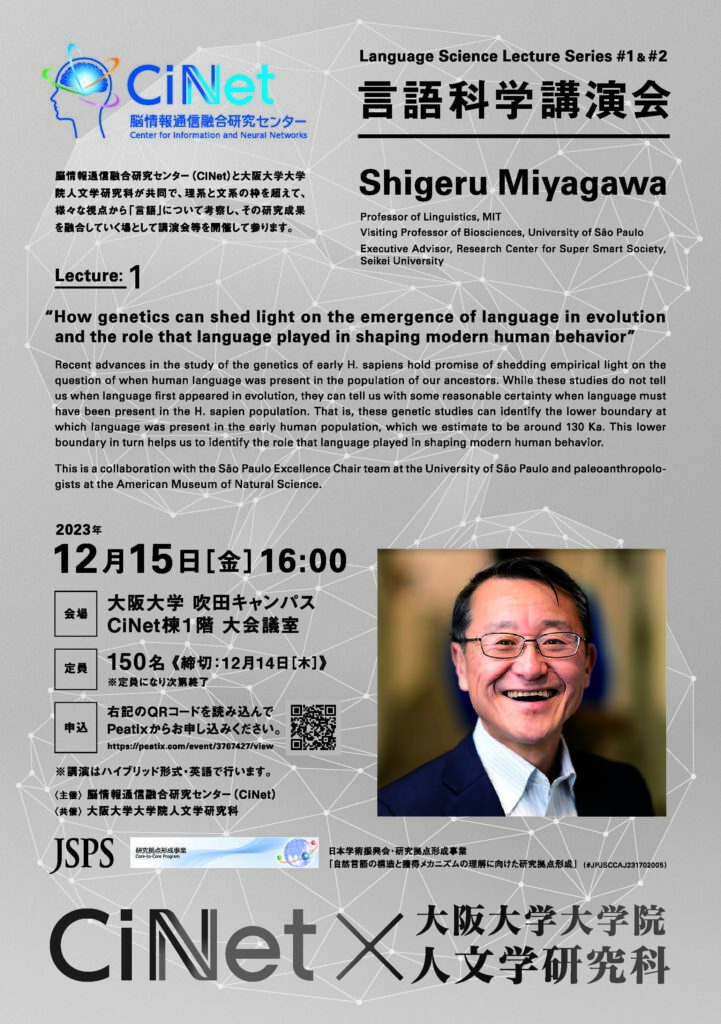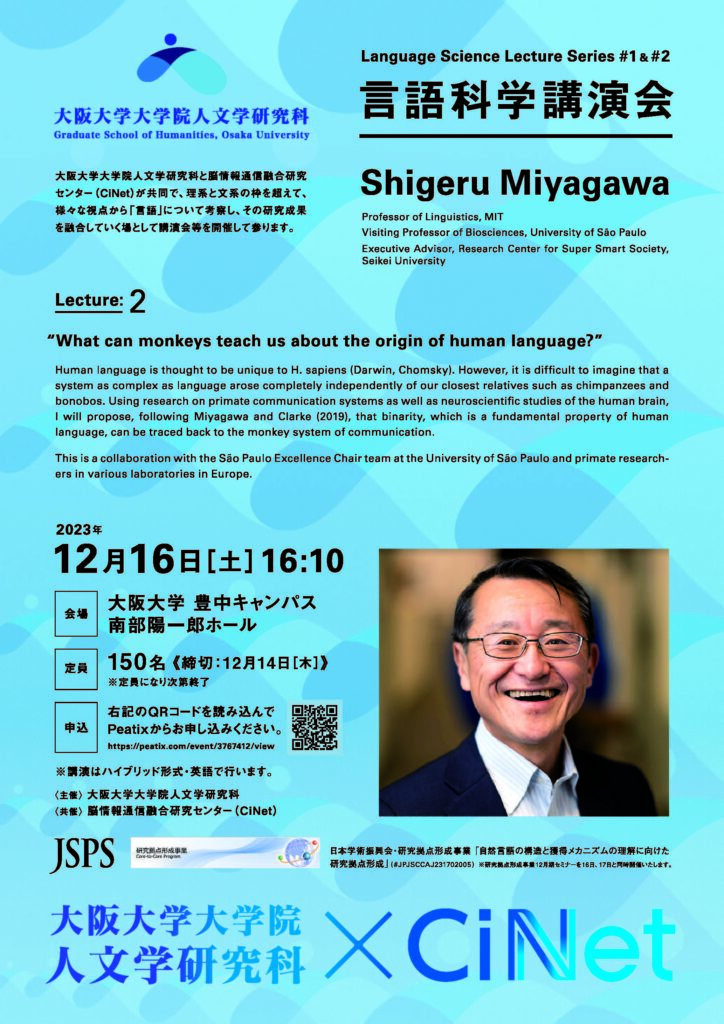Speaker:
Shigeru Miyagawa
Professor of Linguistics, MIT
Visiting Professor of Biosciences, University of Sao Paulo
Executive Advisor, Research Center for Super Smart Society, Seikei University
Lecture 1, Dec. 15 at 16:00 (JST) : online & in the CiNet Conf. Rm.:
“How genetics can shed light on the emergence of language in evolution and the role that language played in shaping modern human behavior”
Recent advances in the study of the genetics of early H. sapiens hold promise of shedding empirical light on the question of when human language was present in the population of our ancestors. While these studies do not tell us when language first appeared in evolution, they can tell us with some reasonable certainty when language must have been present in the H. sapien population. That is, these genetic studies can identify the lower boundary at which language was present in the early human population, which we estimate to be around 130 Ka. This lower boundary in turn helps us to identify the role that language played in shaping modern human behavior.
This is a collaboration with the Sao Paulo Excellence Chair team at the University of Sao Paulo and paleoanthropologists at the American Museum of Natural Science.
Lecture 2, Dec. 16 at 16:00 (JST) : online & in the Nambu Yoichiro Hall on Toyonaka Campus:
‘What can monkeys teach us about the origin of human language?”
Human language is thought to be unique to H. sapiens (Darwin, Chomsky). However, it is difficult to imagine that a system as complex as language arose completely independently of our closest relatives such as chimpanzees and bonobos. Using research on primate communication systems as well as neuroscientific studies of the human brain, I will propose, following Miyagawa and Clarke (2019), that binarity, which is a fundamental property of human language, can be traced back to the monkey system of communication.
This is a collaboration with the Sao Paulo Excellence Chair team at the University of Sao Paulo and primate researchers in various laboratories in Europe.
Blow up the posters below and sign up to participate from the QR code.


